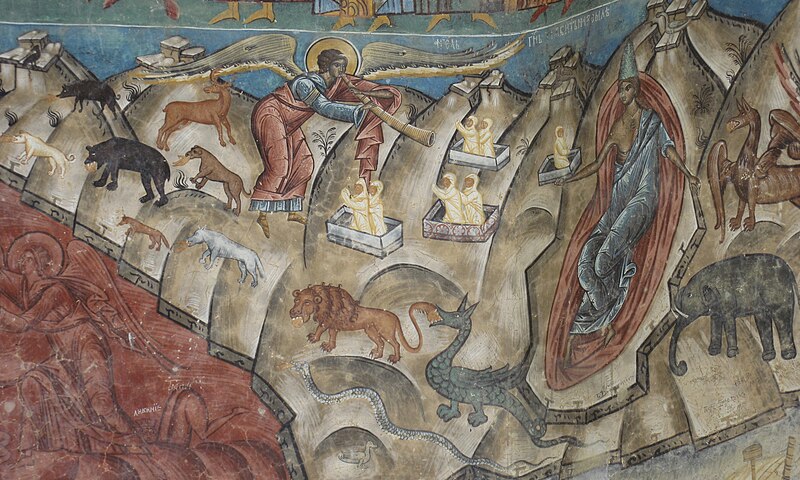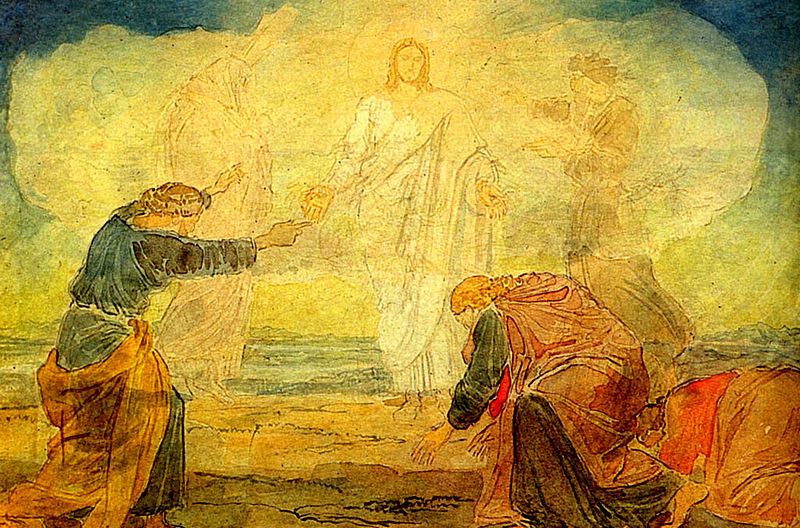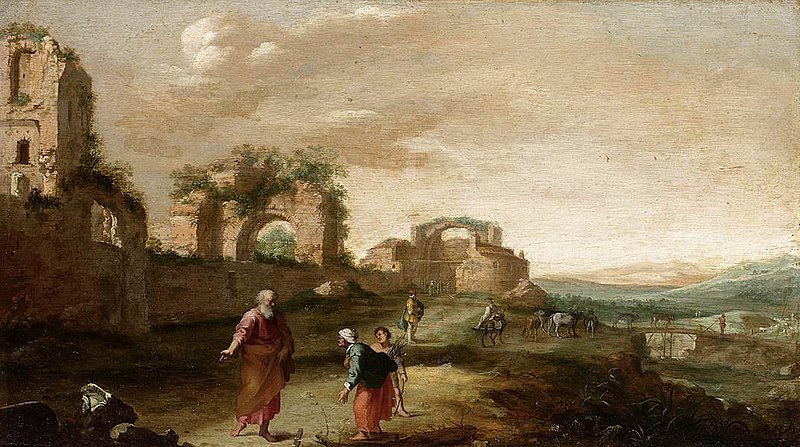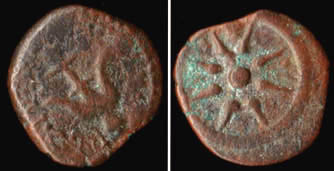
“Whoever welcomes one such child in my name welcomes me.” (Mark 9:37)
This is the message from last Sunday, September 23, 2018, on which the congregation celebrated the 40th anniversary of my ordination. The sermon is related to that anniversary, but rooted in the assigned readings: Mark 9:30-37, Jeremiah 11:18-20, Psalm 54, and James 3:13-4:8a,
Mark 9:30-37: They went on from there and passed through Galilee. He did not want anyone to know it; 31for he was teaching his disciples, saying to them, “The Son of Man is to be betrayed into human hands, and they will kill him, and three days after being killed, he will rise again.” 32But they did not understand what he was saying and were afraid to ask him.
33Then they came to Capernaum; and when he was in the house he asked them, “What were you arguing about on the way?” 34But they were silent, for on the way they had argued with one another who was the greatest. 35He sat down, called the twelve, and said to them, “Whoever wants to be first must be last of all and servant of all.” 36Then he took a little child and put it among them; and taking it in his arms, he said to them, 37“Whoever welcomes one such child in my name welcomes me, and whoever welcomes me welcomes not me but the one who sent me.”
You see, O God,
the struggle of the human heart for privilege and honor
and set before us the betrayed and crucified body of your Son.
May he who was servant of all teach us his way;
through your Son, Jesus Christ our Lord.
+ + +
Grace to you and Peace, from God our Father and our Lord and savior, Jesus the Christ.
It’s hard to believe I have been doing this for 40 years. It’s stunning to wake up one morning and realize how long it’s been. On the other hand, it’s amazing to think back to all the people and places I’ve known. I have lots of memories – though not as many as I wish. I regret not having kept a journal of my experiences through the years.
A friend wrote me last week about a dramatic graveside service in the rain. It was Wisconsin, so I’m assuming there had been a thunderstorm. I wrote back about a graveside service on a cold November day in Toledo, grey skies, the trees stripped of their leaves, in a little old country cemetery now surrounded on three sides by an oil refinery. I stood at the head of a casket before a small huddle of people, amid the pungent aromas of the refinery and the sounds of its clangs and whistles and whooshes, reading the ancient texts and speaking the promise of a new creation. I wish I knew who that was.
I wish I remembered the name of the person whose funeral I conducted one Good Friday. I had buried his wife four days earlier. He went home after the service, climbed up in his closet and got down an old pistol. Now their adult children were before me once again.
In those days when the heavens seem silent, it falls to the preacher to speak, to break that wall of silence, to let the voice of God be heard in its fearful sweetness.
I never understood the wife of a colleague of mine who was a minister in the United Church of Christ. For her, the sermon was only one member of the community sharing their thoughts for the rest of the community – thoughts the community could take or leave as they saw fit. I don’t know if that’s true of her whole church body; I just know she didn’t share this deep conviction that somewhere in the weeds of the preacher’s words would be hiding the voice of the eternal with all its power to wound and heal.
When I was interviewed here, downstairs in the Fireside Room, I was asked to lead a devotion at the beginning of the meeting. I don’t remember if the call committee had forgotten to tell me they wanted me to do this, or if it was part of the test to see what I might do at the last moment. I turned to the passage in Hebrews (4:12) about the Word of God being sharper than any two-edged sword and talked about the fact that the word ‘sword’ there was the word for the small dagger possessed by a soldier, not the big sword. That dagger was used for fine cutting. It’s more of a knife than a sword, and I suggested we should understand the Word of God as a scalpel with which God does surgery on our hearts.
We are in need of surgery. The Bible is not a book of doctrines and policies; it gives very few absolute answers beyond loving God and neighbor with all your heart and soul and mind. But what the Bible does do is convey to us these stories, events, poems and preaching that have the power, like a scalpel, to set us free from the fears and sins that bind us and shape us into the creatures we were meant to be.
Let us imagine for a moment that Kavanaugh did this thing of which he is accused. And let’s clear away for a moment all the partisan politics and ideologies that are clamoring for power. Let us just imagine that a person is suddenly confronted with a fact from the past saying, “You did this to me, and this is what it cost me.”
It is a fearful thought. Maybe it was forgotten in a haze of alcohol, maybe it was a memory suppressed, maybe it was one of those things you never thought anything about because it was ordinary in the world in which you lived, I don’t know. But suddenly here is this word with its long bony finger pointed at you. This is the story of David and the prophet Nathan (2 Samuel 11:1-12:23). David is swept away by the beauty of Uriah’s wife bathing in the moonlight. He sends for her. She gets pregnant. He brings Uriah home from the front hoping to cover his crime. Uriah is too honorable to enjoy the comforts of his home and bed while his men are in the field. David gives secret orders to put Uriah in the front lines and pull away. He is killed. The King’s crime is covered and forgotten. But then comes Nathan with a story of a poor man and his single beloved lamb. The lamb lies in the poor man’s lap like one of our comfort animals. The rich man with many flocks has a visitor arrive and takes the poor man’s lamb to serve his guest for dinner. David is incensed. “The man deserves to die,” he shouts. And then Nathan points his long bony finger and says: “You are the man.”
The word of God is a scalpel. But it points at David not to condemn and destroy, but to free and heal him.
So here we are with this story about Kavanaugh. The response we see around us is to destroy him or to destroy her, and in that instinctive reaction it is not Kavanaugh’s sins that are on display nor his accusers; it is our sins. We are not looking for healing; we are looking for triumph. One way or the other, one side or the other, we want to win. We want to crush our enemies. And we are willing to order Kavanaugh or Ford to the front lines and pull back.
So there is a story about the prophet Elisha (2 Kings 6:8-23). The king of Aram (what is now Syria) is at war with Israel. But God keeps telling the prophet what the king of Aram is doing, where he is moving his troops, where he is planning to attack, and the King of Israel keeps escaping his grasp. The King of Aram is enraged, convinced that one of his generals is betraying him by leaking his plans to the enemy. They all plead innocence. None of them is the betrayer; it is the prophet who whispers to the King of Israel the King of Aram’s private thoughts. So the King of Aram sends his army to seize the prophet. They come at night and surround the city.
In the morning, the prophet’s servant looks out and sees the town surrounded by an army of horses and chariots and cries out in fear. His story is about to end at the point of a spear. But the prophet prays for God to open his servant’s eyes, and he looks up to see the angelic armies of God encircling the city. “Those who are with us,” says the prophet, “are more than those who are with them.”
God strikes the enemy troops with a blindness, a confusion, a fog. As they come into town, the prophet says “Oh you have the wrong town. I’ll show you the way.” And he leads them to the King of Israel. The prophet prays for God to open their eyes and they find themselves surrounded in the capital city. And here is the punch line: The king asks the prophet what he’s supposed to do with the enemy now in his hand. “Shall I kill them, my father? Shall I kill them?” All his enemy’s soldiers are in his power. He has the chance to destroy them completely. But the prophet says instead that he should feed them. The king sets before them a banquet. They sit down to a table of peace. They are reconciled.
We want to win. We want to crush our enemies. “Shall I kill them, my father?” But the scalpel of God tells a story about reconciliation, repentance, transformation, love of God and neighbor.
I have a deep sympathy for Ford; I know something about sexual assault. I also have a deep sympathy for Kavanaugh; I know something about having your life turned upside down in a moment – and I know something about the sins of our youth. Perhaps mostly, I have a deep sorrow for the nation, because we are so far from the kingdom and rushing in the wrong direction. We are a people who do not know how to repent, and the sins of our past – from greed and slavery and genocide to our everlasting faith in winning at all costs – keep haunting us. Our good deeds can’t make the old deeds go away. David was faithful in almost everything. Yet this murder of Uriah needed to be confessed or it would all go wrong.
So there’s another story (1 Kings 21). King Ahab married the daughter of the Sidonian king (1 Kings 16:31). Her name was Jezebel. We don’t name our kids Jezebel anymore.
Ahab grows up in a world where God is God. God has given the land to the people, divided it among every tribe and family. The land is not my possession; it is a gift of God to my family. It is my responsibility to care for it; it is not my privilege to dispose of it. The law says I can’t sell it. If I have to, I can sell the right to use the land until the next sabbatical year. I can sell the next so many harvests, but I can’t sell it permanently.
Ahab is king. He has a palace. He wants the vineyard that belongs to Naboth in order to grow vegetables. Naboth is scandalized by the idea that he should sell his patrimony. He says no. Ahab is depressed and goes to bed. Jezebel is disgusted. She will teach him how a king uses power. She gives a banquet. She invites Naboth to sit at the high table. She hires two scoundrels to sit next to him. In the middle of the dinner they stand up and accuse Naboth of cursing God and the King. They take him out and stone him to death. Jezebel goes to Ahab and says, “Go get your garden.”
Except God has a prophet. God has a servant with God’s heavenly scalpel. And the prophet is standing there in the garden when Ahab shows up to claim it. This is not the kingship God wants, says the prophet, Ahab’s kingdom will fall by the same violence Ahab used.
And so the scalpel of God comes to us. Will we choose violence or faithfulness? Will we choose victory or redemption? Will we choose wealth, power and conquest or justice, mercy and reconciliation?
Story after story, preached word after preached word, songs and poems and history and even erotic poetry – it’s all here in this book – and lurking in it all is this God with a scalpel who would heal our hearts.
So, in the texts we heard today: Jeremiah is a prophet. He holds the scalpel of God. And the word of judgment he speaks against a corrupt regime creates enemies. The king doesn’t want to hear what Jeremiah has to say. Jeremiah will send the king a copy of everything God had said, and the king will burn it all, page by page, in the brazier standing next to him to keep him warm. (Jeremiah 36)
Jeremiah is a priest. His hometown is a village of priests. They all have a stake in the temple and the monarchy. They have a good life. They don’t want Jeremiah mucking it up for them. They see treason in him, not the divine scalpel. They plot to kill him. And so we hear Jeremiah crying out to God in the words we read this morning: “I was like a lamb led to the slaughter.” And we know there is in us a piece of this village of Anathoth that wants to hold on to what we have even if it means silencing the prophet. Even as Jerusalem rose up against Jesus.
The book of James wields the divine scalpel against the passions that drive our hearts and lead us to betray the divine will. “Submit yourselves therefore to God,” he writes, “resist the devil, and he will flee from you. Draw near to God, and he will draw near to you.”
Jesus is on his way to Jerusalem. The disciples are thinking: “Our time is coming! We are going to win. We are going to rule.” And they argue over which of them is the top dog.
“What were you talking about?” asks Jesus. He knows full well what they were talking about. Arguments in the Middle East are never quiet.
“What were you talking about?” And suddenly they are silent. Jesus is holding the divine scalpel in his hand. It’s not a sword, though; it’s just a scalpel. It is always just a scalpel, meant to heal and not to harm. “Whoever wants to be first must be last of all and servant of all.” And Jesus puts a child in their midst.
Now we have to get this right. In our society, if you don’t have enough food, you feed the children first. In the time of Jesus, you feed the adults first. Children are loved, but they are at the bottom of the totem pole. They are valued. They are blessings from God. Hopefully they will become adults and take care of their aging parents. But the odds are they won’t make it to adulthood. The death toll is too high. The calories have to go to those who can work the fields.
If we really want to understand what Jesus is saying to his followers, we need to imagine Jesus taking a refugee, or a homeless person, or an addict, whomever we think matters least, and setting him or her in the midst of us, putting his arms around him or her and saying, “Whoever welcomes one such child in my name welcomes me, and whoever welcomes me welcomes not me but the one who sent me.”
It is the scalpel of God.
Amen
+ + +
Image: https://commons.wikimedia.org/wiki/File:Syriske_flyktninger_(8184618433).jpg By Norsk Folkehjelp Norwegian People’s Aid from Norway (Syriske flyktninger) [CC BY 2.0 (https://creativecommons.org/licenses/by/2.0)%5D, via Wikimedia Commons
 Watching for the Morning of February 14, 2021
Watching for the Morning of February 14, 2021








